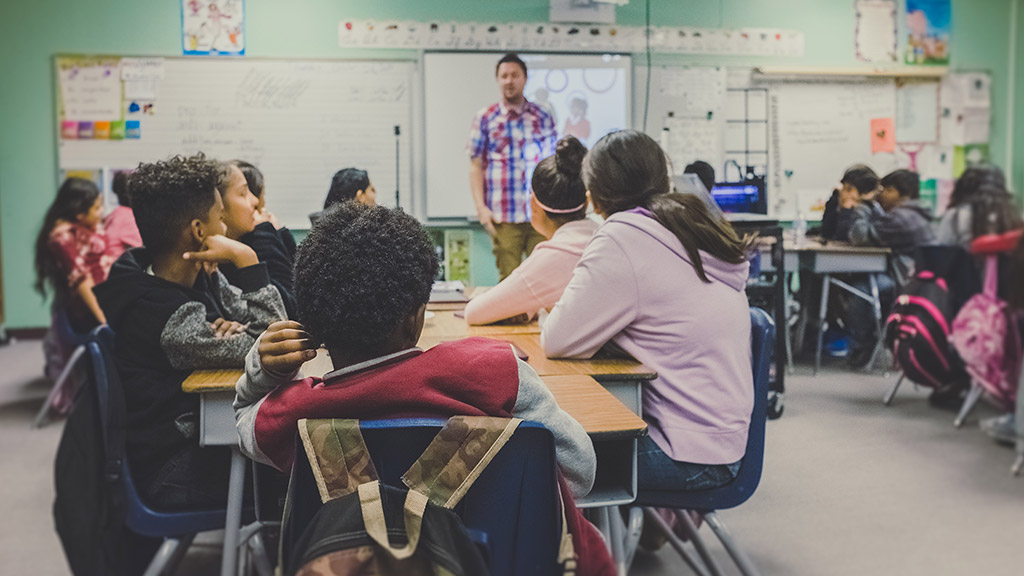Use of social media and blogs aids teachers' professional development
Having to close schools as a result of the coronavirus outbreak brings the digital challenges for education to the fore
The coronavirus outbreak led to the closing of schools in many countries. Despite the fact that the Spanish education system hasn't been designed for distance learning, many teachers have adapted in record time to remote teaching. In fact, a study from before the outbreak has shown that primary school teachers are committed to using information and communication technologies (ICT) and feel they have support from their schools to incorporate digital practices. This is one of the conclusions of a research study published in the scientific journal Comunicar. The study, led by the Universitat Oberta de Catalunya (UOC), was based on interviews carried out with primary school teachers who are influencers in these practices in Catalonia.
"ICTs enrich and expand upon teachers' and students' learning possibilities," explained Teresa Romeu, researcher with the Education and ICT research group (EDUL@B), professor at the Faculty of Psychology and Education Sciences and lead author of the study.
Nine teachers, all of whom are pioneers in the creation and use of educational innovations and act as influencers for other teachers, were selected from an initial sample of twenty-four candidates,. "They are teachers who display an ongoing use of technology both in terms of their classroom teaching and their own professional development," Romeu said.
The nine teachers selected work in state and state-assisted schools. Three of them have been teaching for less than ten years, three for between ten and twenty years, and the other three for over twenty years. Alongside the personal interviews, the researchers analysed materials and other content created for their teaching activities.
The study explores the nine teachers' learning ecologies, that is, the elements they use in their teaching, both technology-based and otherwise. These include on-site courses, participation on social media, reading books, watching TED talks and being a member of a community of practice.
"Being aware of the elements that make up our learning ecologies can be a very useful strategy for teachers in their professional development," the researcher argued.
Training inside and outside school
The teachers selected are active on social media, interested in innovation and use ICT in the classroom, either as support or to prepare teaching materials using internet resources.
The research reveals that in terms of training, many teachers choose formal on-site or online education, primarily taught by universities. However, there are also teachers who show a preference for informal and more hands-on channels.
In terms of on-site activities, we see that attendance at one-day events and conferences is common, as are informal contacts with colleagues and student interns in schools, which the authors maintain are an important channel for professional development. The research also reveals that these teachers prefer to do both formal and informal on-site activities in their own schools.
"Training is measured in a broad sense," Romeu explained. "This involves collaborative practices, group tutorials, collegiate practices, informal training, and so on. In this sense, teacher training is breaking moulds, going beyond institutionalized training and taking place both inside and outside the school".
With regard to their online activity, their contacts with other users focus on searching for information and comparing ideas, and on establishing personal and professional relationships. Their use of social media, both actively (participating) and passively (consulting), is important, as are their visits to influencer blogs.
The most widely used social media is Twitter, which teachers use largely to keep up to date with information from colleagues and influencers, search for information, follow colleagues, share resources and personal opinions, ask for information and for professional development in general by taking on-site or online courses.
Intense online activity
The teachers interviewed work intensely online and seldomly use physical and print media. Blogs by influential educators are the most widely consulted resources, and they access them via Twitter or through RSS subscriptions.
Some of them are also bloggers themselves, with a personal, group or school blog. They post and share resources to reinforce educational practice weekly or fortnightly.
As for the resources they use, as well as educational blogs, they also use institutional websites, educational resources and open data, for which they use smart phones, tablets and computers.
"Knowledge is found online and teachers should be the ones to mentor their students throughout their learning process," the researcher said. "Technology alone is not a guide, so the teacher's role is key, both inside and outside the classroom."
The researchers at EDUL@B have spent a number of years analysing learning ecologies in different contexts: primary school teachers, secondary school teachers, university lecturers and, more recently, digital influencers. The next stage in the research will look at secondary education and its relationship with ICT.
The aim here is to discover how teachers pursue their own development to be able to offer suggestions, recommendations and strategies that improve both online and on-site training based on ICT's potential.
Reference article
Romeu-Fontanillas, T.; Guitert-Catasús, M.; Raffaghelli, J. E.; Sangrà, A. (2020). "Ecologías de aprendizaje para usar las TIC inspirándose en docentes referentes". Comunicar. DOI: 10.3916/C62-2020-03.
UOC R&I
The UOC’s research and innovation contributes to solving the challenges facing the global societies of the 21st century by studying ICTs’ interactions with human activity, with a specific focus on e-learning and e-health. Over 400 researchers and 48 research groups work among the University’s seven faculties and three research centres: the IN3, the eLearn Center and the eHealth Center.
The United Nations 2030 Agenda’s Sustainable Development Goals and open knowledge provide strategic pillars on which the UOC’s teaching, research and innovation are built. More information: research.uoc.edu.
Experts UOC
Press contact
-
Editorial department
